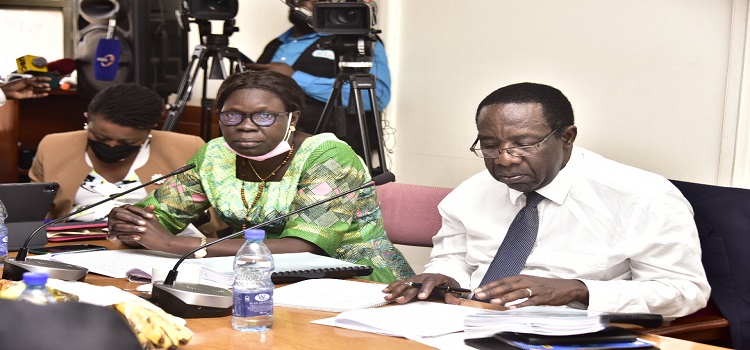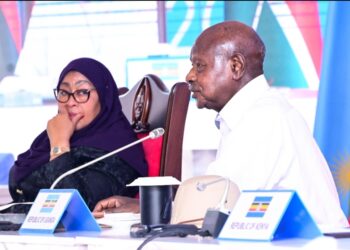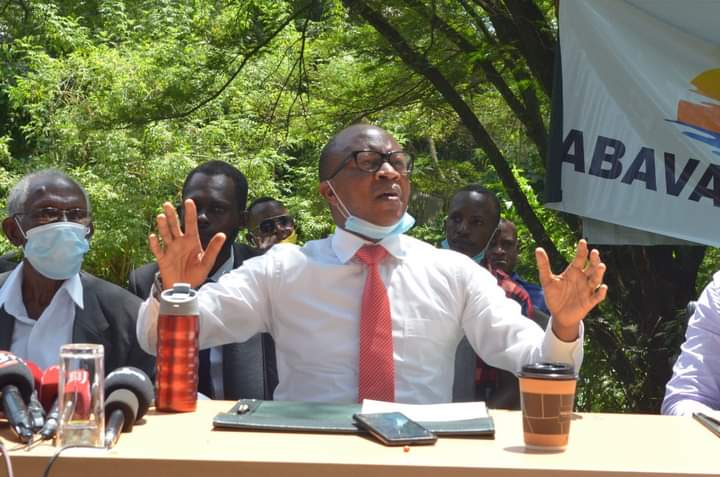Government’s proposal to enter into a shareholding agreement with a local construction firm, Roko Construction Limited has raised eyebrows among Members of Parliament on the Committee of Finance, Planning and Economic Development.
Last week, the Minister of State for Finance (General Duties) Henry Musasizi tabled a proposal for government to purchase 150,000 preference shares in Roko Construction Limited worth Shs202.13 billion. The request was directed to the Committee on Finance for scrutiny.
The payment will consist of shares purchased at a par value worth 150 billion Shillings and a share premium value estimated at 57.6 billion Shillings.
Parliament heard that Roko has been faced with severe liquidity challenges that have constrained its ability to execute contracted projects that have adversely affected payments to its various suppliers and the financial sector. The company is currently significantly indebted and its indebtedness as of May 31, 2022, totals 202.4 billion Shillings.
It also has contingent liabilities from bank guarantees of 130.9 billion Shillings while its indebtedness to financial institutions totals 35.7 million US Dollars and 20.7 billion, bank guarantees issued for ongoing projects amount to 130.9 billion, which would be retired as projects are executed, and dues to local suppliers are 46.8 billion.
While meeting MPs on the Finance Committee chaired by Hon. Keefa Kiwanuka on Tuesday, 12 July 2022, Roko Construction Limited officials led by their Managing Director, Mark Koehler justified the move saying it will be “an exciting investment” to have government as a preference shareholder to raise its liquidity prowess.
However, MPs were not convinced about the proposal that could see government borrow over Shs202 billion to buy shares in Roko saying there is no guarantee of returns on investment since dividends are only premised on profits with little or supervision from government.
“Why is Roko selling preference shares to government yet the company’s Articles of Association do not allow buying of shares? This looks like a borrowing or a loan being advanced to Roko rather than an investment. This arrangement means that government cannot participate in decision making,” Hon. Xavier Kyooma (Ibanda North) said.
Butambala County MP, Hon. Muwanga Kivumbi wondered why Roko that has been boasting of a healthy financial status is looking for an investor yet the construction firm could have explored other options such as seeking a financial undertaking with Uganda Development Bank (UDB).
Kashongi County MP, Hon. Herbert Tayebwa Musasizi suggested that rather than selling preference shares to government, Roko should join the stock market in search for shareholders to inject money into the operations of the firm.
“Roko is a limited company that has been making profits. In 2018, they made profits of Shs790 million, Shs2.8 billion in 2019 and only made a loss of Shs3.4 billion in 2020. It should therefore, be able to finance its working capital,” Tayebwa said adding that, ‘this transaction only favours Roko with no monetary gain from government’.
“This is an investment on the side of Roko and a debt on the side of government. Whereas Roko has the privilege of paying dividends after profits, government has an obligation to interest on the money it borrowed from the bank. So why is government going to borrow money to pay Roko and at the end of the day, come out with nothing? Suppose the company does not make profits?” he added.
According to Dr. Joseph Kibuuka, Roko’s transaction advisor, government’s interests will be well protected in the new shareholding agreement with flexible terms of reference.
“This is an investment; it is not a borrowing from government. That is why we have a 4.35 per cent per value of preference shares that will go to government as a preference shareholder. This nature of transaction is that shares are redeemable within eight years and if government chooses to leave and asks us to redeem, then it is a decision both parties can take,” Kibuuka said.
Kibuuka also allayed MPs’ fears that under a preference shareholding agreement, government will not take part in decision making which could be detrimental to profit maximization and accountability.
“In the new governance structure, government will appoint two members to the Board on recommendation of the relevant ministries. One of the two members will chair the Audit Committee which creates an assurance platform into this transaction. The two members on Board will still have veto rights,” he added.
Do you have a story in your community or an opinion to share with us: Email us at editorial@watchdoguganda.com












